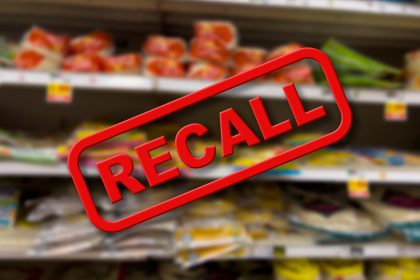A major food safety alert has been issued following the recall of thousands of pounds of sausage products manufactured in Texas. The recall stems from reports of contamination involving foreign materials, raising concerns over potential health risks for consumers. Authorities have emphasized the urgency of identifying and removing these products from circulation to prevent further incidents.
The recall has affected both fresh and frozen sausages distributed across multiple regions. Consumers are now being urged to check their refrigerators and freezers to ensure they do not have any of the recalled products. The decision to pull these items from shelves underscores the importance of strict food safety standards and the measures taken when those standards are compromised.
How the contamination was discovered
The issue came to light when a consumer reported an unexpected and potentially dangerous foreign object inside a sausage. This alarming discovery led to an immediate investigation, confirming the presence of non-food material in several batches. The contamination has already resulted in at least one confirmed injury, highlighting the severity of the situation.
Once the problem was identified, regulatory authorities stepped in to assess the extent of the issue. Their findings prompted swift action to remove affected products from stores and prevent further consumption. Investigations are ongoing to determine how the contamination occurred and whether additional safety measures need to be implemented to prevent similar incidents in the future.
Identifying the affected products
Consumers have been advised to pay close attention to packaging details to determine if they have purchased one of the recalled items. The affected products were all manufactured on the same production date and share specific batch codes and expiration dates. While the recall primarily impacts certain regions, there is growing concern that some consumers may still have these items stored at home.
For those who are unsure whether their product is included in the recall, checking official recall notices and product codes is essential. The recall also serves as a reminder of the importance of inspecting food products before consumption, particularly when there is an ongoing safety concern.
What consumers should do next
Those who have purchased any of the recalled products are being urged to take immediate action. The safest course is to stop consuming the product and properly dispose of it to prevent any risk of harm. For individuals who have already consumed the affected sausage and are experiencing any adverse reactions, seeking medical attention is strongly recommended.
Retailers have been instructed to remove all impacted products from their shelves, and customers may return recalled items for a refund. Additionally, food safety agencies have set up helplines and online resources to assist the public in navigating this issue.
For those concerned about food safety in general, staying informed about recalls and understanding the proper steps to take when an issue arises can help prevent similar risks in the future. Manufacturers and regulatory agencies continue working together to ensure that food products meet safety standards and that necessary actions are taken when a failure occurs.
The broader impact of food recalls
Food recalls are not uncommon, but each one serves as a reminder of the vulnerabilities in food production and distribution. Contamination can occur at various points in the supply chain, from manufacturing and packaging to transportation and storage. When safety protocols fail, the consequences can range from minor inconveniences to severe health hazards.
Beyond immediate health concerns, food recalls also impact businesses, leading to financial losses, legal repercussions, and damaged reputations. Consumers, on the other hand, may experience a loss of trust in certain brands and industries. Ensuring transparency and accountability in the recall process is crucial to maintaining confidence in the food supply.
Lessons in food safety and prevention
This recall reinforces the importance of food safety regulations and the role consumers play in protecting themselves. While manufacturers and regulatory agencies have a responsibility to maintain high safety standards, individuals can also take steps to minimize risks.
Simple practices such as checking recall alerts, inspecting food before consumption, and being aware of unusual textures or foreign objects in products can make a difference. Reporting concerns immediately can also help prevent potential dangers from affecting others.
As the investigation into this recall continues, authorities will work to determine the cause of contamination and implement measures to prevent a similar occurrence. In the meantime, consumers are encouraged to stay vigilant and informed, ensuring that food safety remains a shared priority.













